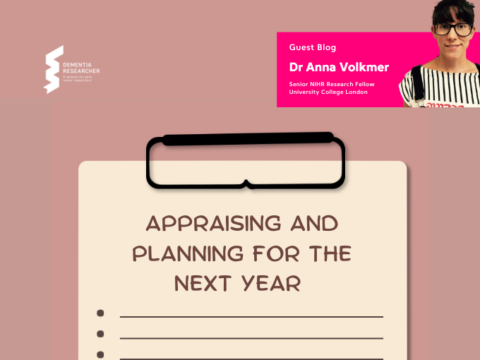Time has really flown by quickly this year, despite several lockdowns and all of the restrictions in place, and all of my teaching on my Master’s degree is now finished. I still have a few final pieces of coursework to complete and my thesis to hand in but I thought it would be worth looking back on what I have had the opportunity to study and learn about throughout my degree so far.
I remember starting this degree with a background in psychology and neuroscience and feeling pretty informed about dementia and the fields of neuroscience and psychology. It’s therefore come as a bit of a shock to see the sheer amount that I have learned in a relatively short space of time. I knew that Masters study was intense but I wasn’t prepared for how much I would learn and how enjoyable the process would be.
On the MSc Dementia, we have compulsory core modules and the opportunity to study a few optional modules. Core modules included two of our biggest courses this year which were clinical and practical neuroscience of dementia. Both courses are well linked, with clinical neuroscience of dementia providing us with a good grounding and background in dementia and the different neurodegenerative diseases, and practical neuroscience of dementia then following on from this to teach us more about how this looks in practice and the different considerations that come with a diagnosis of a neurodegenerative disease. Neurobiology of degeneration and repair was another compulsory module and gave us a deeper insight into molecular and cellular neuroscience and the actual mechanisms behind the diseases we had learned about so far. This was really useful in understanding each disease and type of dementia and making sense of the symptoms we had learned about.

With face to face teaching set to return, now is a great time to apply for for 2021/22 MSc Courses – see our directory
Current research in dementia was a compulsory module that provided a great opportunity to learn about the research currently taking place throughout Queen Square and beyond and to keep us up to date with the most recent and impactful research in the field. This is really important in academia and this course provided the opportunity to speak to world leading experts about their research and similar work taking place. Higher functions of the brain taught us about cognitive functions within the brain and how they can be affected by dementia and neurological and neuropsychiatric conditions. This was really interesting as it showed us the impact that these conditions can have upon normal functioning.
Optional modules gave us the opportunity to tailor our studying to our own interests. I personally chose to study Advanced Treatment and Management of Dementia, and Neurorehabilitation. Advanced Treatment almost followed on from Current Research and gave us a really in-depth understanding of the current issues facing management and treatment of dementia. My neurorehabilitation module was focused on stroke rehabilitation and covered and was taught by a range of staff with different expertise. Both of my optional modules were well suited to me but there is plenty more to choose from if you have other interests. Other students on my course have taken a wide variety of modules from different fields within neuroscience and biosciences. This freedom to choose some of our learning has been really important in applying to jobs and PhD’s in order to gain experience and knowledge in the area we would like to specialise in.
While I do not have medical training, this degree does take a very clinical focus so the content was difficult to keep up with at first while I got used to the different terms used and a totally new way of learning. Teaching staff encouraged us to be interactive and engaged with the content and I think this helped to soak up the information and think more deeply about what we were learning. Yes, this degree has taught me about dementia, but it has also taught me about how to be a good researcher and has shown me that there are many different routes and paths taken within dementia research. I have been taught by a multi-disciplinary team this year including psychologists, neurologists, physiotherapists, speech and language therapists, researchers and PhD students. Each of these professions contribute to dementia care and research in their own way and are all so valuable to the field. I feel extremely grateful to have been taught by such a wonderful group of people who are really leading the field in dementia research.
Thanks for listening,
Morgan.

Morgan Daniel
Author
Morgan Daniel is an MSc Student at University College London, studying the along the ‘Dementia: Causes, Treatments and Research (Neuroscience)’ track, Originally from Loch Lomond, Morgan completed her BSc in Psychology and Neuroscience at the University of Glasgow in 2019, and she hates all forms of potato! Morgan is sharing her MSc journey during 2020 / 2021 with NIHR Dementia Researcher.

 Print This Post
Print This Post




